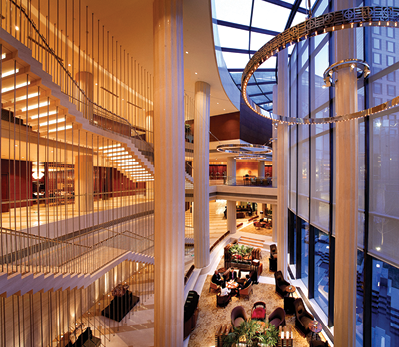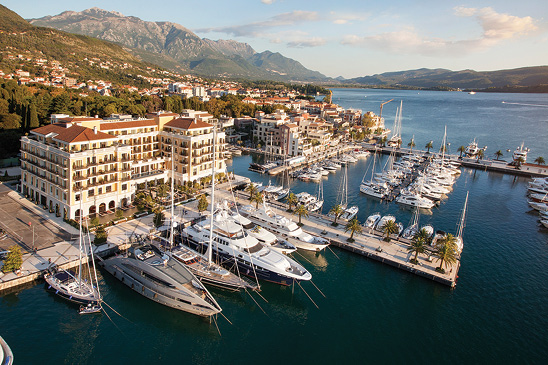- Home
- Media Kit
- Current Issue
- Past Issues
- Ad Specs-Submission
- Ad Print Settings
- Reprints (PDF)
- Photo Specifications (PDF)
- Contact Us


![]()
ONLINE

The “Tao of Regent”
Editors’ Note
Steven Pan joined FIH Regent Group – owner of Regent Taipei – in 1991 and became President in 1992. In 2000, he led a management buyout of the company and became the Executive Chairman. The company acquired Regent Hotels & Resorts from Carlson in 2010. Pan also founded Pacific Resources Group in San Francisco in 1994, and the group has since completed many landmark transactions in San Francisco, Tokyo, and Hong Kong.
Company Brief
Regent (regenthotels.com) was founded in the ’70s and became the first truly Asian-based global hospitality group. In the ’80s and ’90s, Regent properties such as the Regent Hong Kong and Regent Beverly Wilshire were among some of the world’s most acclaimed hotels. In 1992, eight Regent hotels were recognized by Condé Nast Traveler as among the Top 25 Hotels in the World, with more than half of the best 14 hotels on earth carrying the Regent name. The brand was later sold to Four Seasons and then Carlson before finally being acquired by FIH Regent Group. The existing Regents are located in Beijing, Berlin, Porto Montenegro, Taipei and Singapore with new hotels opening in China’s Chongqing, Xian, and Harbin, as well as a return to Jakarta in 2018. In 2011, all hotels in the Regent-managed portfolio were listed as the best luxury hotels in the world by the Condé Nast Traveler’s Readers’ Choice Awards, becoming the first and only international luxury hotel group to ever achieve this recognition. In 2013, the group was fifth in the worldwide ranking of the World Luxury Index measuring the most searched and sought-after luxury hotels.
FIH Regent Group (fihregent.com) is the largest and most profitable hotel company listed on the Taiwan Stock Exchange, with market capitalization in excess of $1 billion. FIH Regent Group owns flagship Regent Taipei, which has consistently been one of the most profitable Regent Hotels in the world. Regent Taipei also pioneered the first true luxury hotel shopping concept – Regent Galleria, anchored by Chanel, Hermès, Dior, Graff, Harry Winston, and 50 other luxury brands.
Would you touch on the history and heritage of this brand?
Regent is an iconic name in the global hospitality industry with Asian roots. The brand was started by legendary hotelier Robert H. Burns in 1970, later joined by industry leaders George Rafael and Adrian Zecha, who founded Amanresorts after Regent. They developed and expanded the Regent brand to become the first truly Asia-based global hospitality group in an industry previously dominated by European and American brands. Regent infused high-quality Asian hospitality standards into all of their hotels worldwide, including the flagship Regent Hong Kong, which introduced the five-fixture bathroom, now standard in five-star hotels.

The Beijing Grand Lobby
Between 1970 and 1992, Regent opened 17 hotels, including the celebrated Regent Beverly Wilshire, the magnificent Regent New York, and Regent Bali at Jimbaran, which was the first resort with the all-villa and private pool concept. Regent quickly became synonymous with glamour and style, and dominated the luxury hotel industry with eight Regent hotels among the top 25 hotels in Condé Nast Traveler’s best in the world list. In 1992, the brand was acquired by Four Seasons Group, which rebranded many of the original Regent hotels to Four Seasons.
In 2010, Regent returned to its Asian roots with acquisition by our FIH Regent Group, the original developer of Regent Taipei and the leading hotel company listed on the Taiwan Stock Exchange.
Would you describe the evolution and current state of the Regent brand?
Regent’s brand identity articulates our Asian heritage, which is our heart and soul, and allows us to stand out from our American- and European-rooted competitors. The quotation coined by Regent’s founding fathers encapsulates all that we stand for: “The only thing we specialize in is luxury, and the one thing all our hotels have in common is that they are all unique.” Indeed, the one common thread that our guests will be able to find regardless of location is their own personalized experience.
The bespoke Regent experience, which makes a guest’s stay unforgettable by customizing services to his or her needs, is something that cannot be replicated. The “Tao of Regent,” our brand essence, defines elegant architecture, timeless décor, design elements indigenous to the local area, and intuitive, discreet service, all of which help to achieve a balanced, harmonious luxury: simple yet elegant, modern yet timeless, luxurious yet understated. This concept, along with an excellent development team, has allowed us to grow steadily and surely.

Montenegro Boka Bay view
Where are the opportunities for growth?
Our development strategy is, first and foremost, to return to Regent cities where we have a legacy presence such as in Hong Kong, New York, Los Angeles, Tokyo, Bangkok, Sydney, Kuala Lumpur, Manila, Bali, and Chiang Mai. Jakarta is our first return to a Regent city, where it will be a combination of luxury residences and hotel.
Regent will remain active in China, a market where many of the standardized hotels built in the past will face stiff competition with the openings of new and unique assets. With the presence of Regent Beijing firmly established in China’s capital, we are now targeting Tier Two cities including Chongqing, Xian, and Harbin.
We are purposely managing our growth in order to ensure that we are continuously aligned with and focused on our brand values. We are also constantly reviewing what is important to our Regent stakeholders to ensure that those values we hold dear are correct and relevant, and resonate with our target market.
Our recipe for success is mixed-use developments that incorporate residential space as well as commercial space. A hotel development with residential units delivers a faster return, enabling us in many cases to get our equity back even before the hotel opens. We have introduced and opened the first mixed-use hotel and residential project in Europe’s Porto Montenegro, the new super yacht marina in the Mediterranean Sea under the visionary leadership of Peter Munk and Jacob Rothschild.
How do you define a true luxury hotel experience for the Regent customer?
The luxury hotel marketplace is more crowded and more competitive than ever before. In order to secure success and continue to grow the Regent brand, we need to differentiate ourselves from our competitors. Luxury used to mean a lot of space and Regent defined luxury in 1980 with the spacious five-fixture bathroom. The luxury space has since become standard, so Regent then again redefined luxury with privacy, as we were the first to create an all-villa resort in Bali, with a pool in every key.
The luxury experience is driven by the product, concept, and service. It is important to bring back that handcrafted spirit in the production and the delivery of luxury hotels. A bespoke guest experience is the core of the luxury travel business, and Regent has proven to be an expert in this realm.•